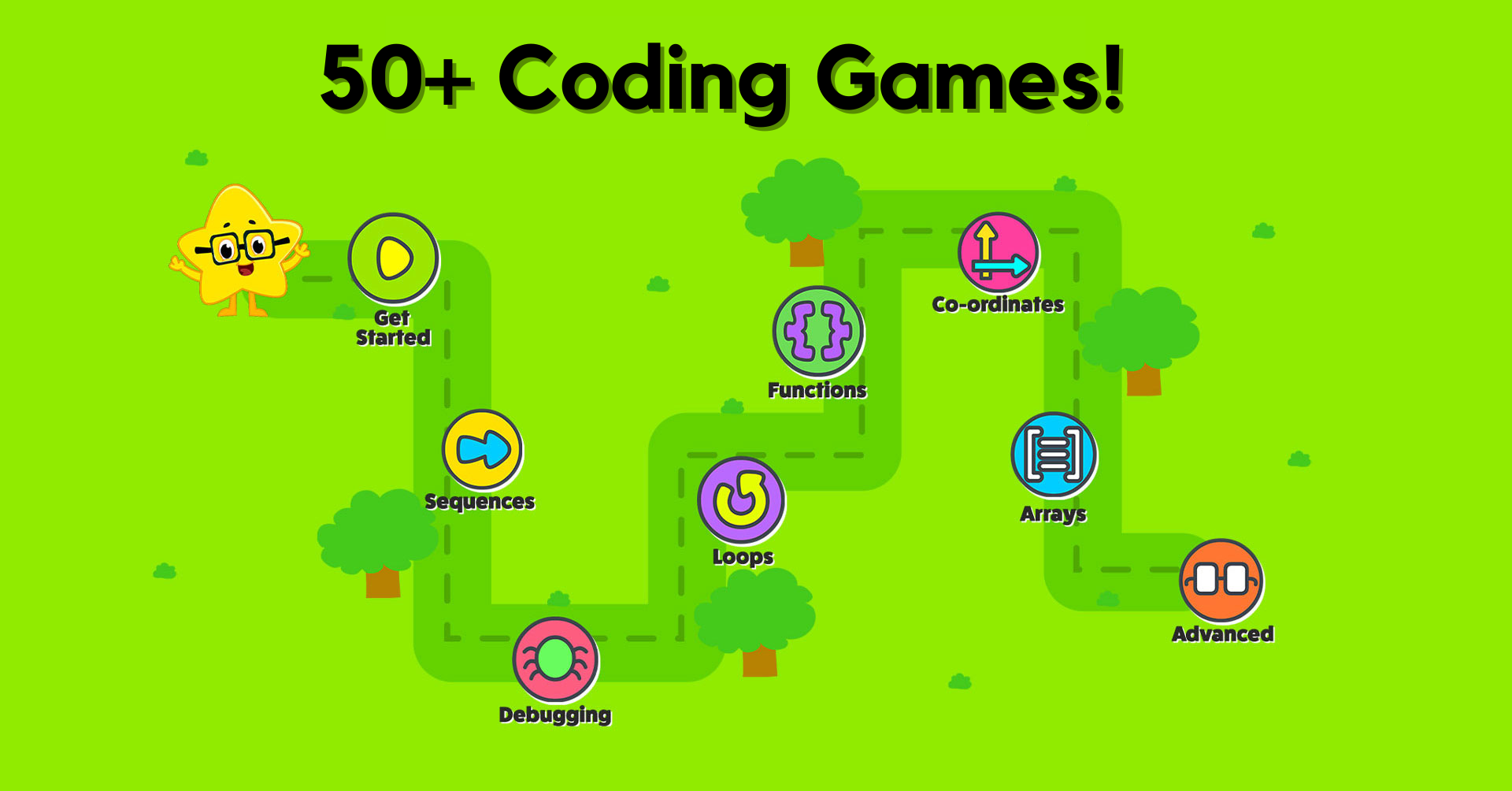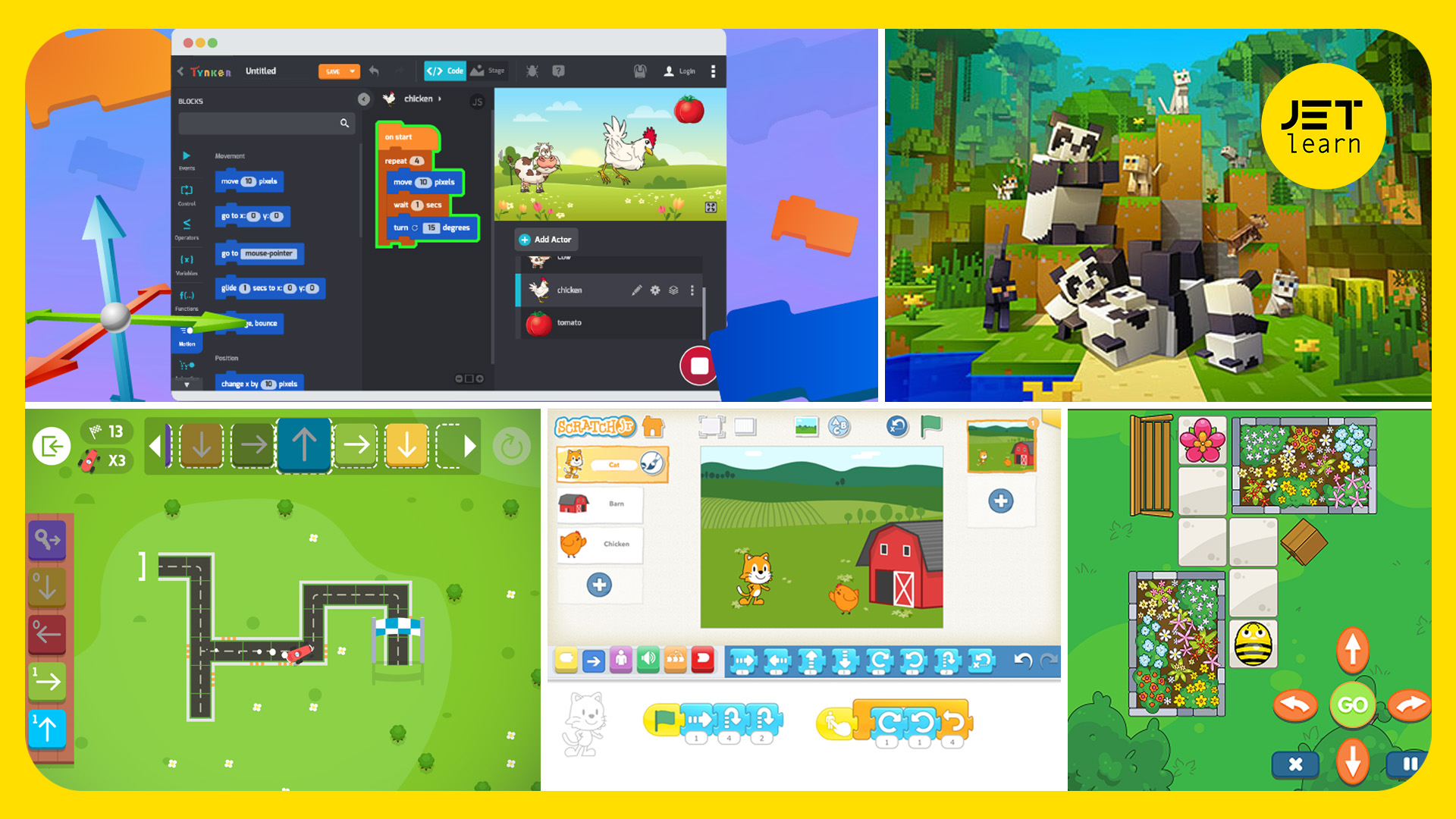Level Up Your Skills: The Ultimate Guide to Online Coding Games
In today’s digital landscape, coding has become an increasingly valuable skill. From web development and data science to artificial intelligence and mobile app creation, the demand for skilled coders is soaring. But learning to code can sometimes feel like a daunting task, especially for beginners. Enter the world of online coding games – a fun, interactive, and effective way to acquire coding skills.
Why Choose Coding Games?
Coding games offer a refreshing alternative to traditional learning methods. They transform the often-intimidating process of writing code into an engaging and rewarding experience. Here’s why they’re so popular:
- Gamified Learning: Coding games break down complex concepts into bite-sized challenges and puzzles. The gamified approach keeps learners motivated, as they earn points, unlock levels, and compete with others.
- Hands-on Experience: Instead of passively reading tutorials, coding games require active participation. You write code, test it, and see the results in real-time, reinforcing your understanding.
- Instant Feedback: Coding games provide immediate feedback on your code. If something goes wrong, you’ll know right away, allowing you to quickly identify and correct errors.
- Diverse Skill Development: Coding games cater to various skill levels, from beginners to advanced programmers. You can choose games that focus on specific languages or concepts, tailoring your learning experience.
- Fun and Engaging: Let’s face it, coding can be challenging. Coding games make the process more enjoyable, helping you stay motivated and learn more effectively.
Popular Online Coding Games
The world of online coding games is vast and diverse. Here are some of the most popular and highly-rated options:
- CodeCombat: CodeCombat is a role-playing game where you learn to code by controlling your hero and battling enemies. It supports languages like Python, JavaScript, and CoffeeScript, making it suitable for beginners and intermediate learners.
- Pros: Engaging storyline, gradual learning curve, supports multiple languages.
- Cons: Some content is locked behind a paywall.
- Codewars: Codewars offers a collection of coding challenges, called "kata," created by the community. It supports a wide range of programming languages, including Python, JavaScript, Java, C#, and Ruby.
- Pros: Large variety of challenges, community-driven, supports many languages.
- Cons: Can be challenging for complete beginners.
- Flexbox Froggy: Flexbox Froggy is a game that teaches you how to use CSS Flexbox to design web layouts. You help the frog navigate to its lilypad by writing CSS code.
- Pros: Focused on a specific CSS concept, easy to understand, visually appealing.
- Cons: Limited scope, only covers Flexbox.
- CSS Grid Garden: Similar to Flexbox Froggy, CSS Grid Garden teaches you how to use CSS Grid to create complex web layouts. You water your carrot garden by writing CSS code.
- Pros: Focused on a specific CSS concept, easy to understand, visually appealing.
- Cons: Limited scope, only covers CSS Grid.
- Screeps: Screeps is a massively multiplayer online game (MMO) where you control a colony of autonomous units by writing JavaScript code. It’s a more advanced game that requires a solid understanding of programming concepts.
- Pros: Real-world coding experience, complex gameplay, active community.
- Cons: Steep learning curve, requires significant time investment.
- CheckiO: CheckiO is a game where you solve coding challenges using Python or JavaScript. It’s designed for intermediate and advanced programmers who want to improve their problem-solving skills.
- Pros: Challenging puzzles, supports Python and JavaScript, community-driven.
- Cons: Not suitable for complete beginners.
- Robocode: Robocode is a game where you program virtual tanks to battle each other. It supports Java and .NET, allowing you to write complex AI algorithms to control your tank.
- Pros: Fun and engaging gameplay, teaches AI concepts, supports Java and .NET.
- Cons: Requires a good understanding of programming concepts.
- Untrusted: This is an adventure game played in a JavaScript interpreter. You must modify the JavaScript code to guide your character through each level.
- Pros: Teaches JavaScript fundamentals, unique gameplay, challenges problem-solving skills.
- Cons: Can be confusing for those with no programming experience.
- Elevator Saga: Elevator Saga is a game where you program an elevator to efficiently transport passengers. It teaches you how to optimize algorithms and handle asynchronous events.
- Pros: Focuses on algorithm optimization, real-world problem-solving, teaches asynchronous programming.
- Cons: Can be challenging for beginners.
Choosing the Right Game for You
With so many options available, it’s essential to choose a coding game that suits your skill level and interests. Here are some factors to consider:
- Programming Language: Choose a game that supports the programming language you want to learn or improve.
- Skill Level: Start with games designed for beginners if you’re new to coding. Gradually move on to more challenging games as you gain experience.
- Game Genre: Pick a game genre that you enjoy. Whether it’s role-playing, puzzle-solving, or strategy, choose a game that keeps you engaged.
- Learning Goals: Identify your learning goals. Do you want to learn a specific language, improve your problem-solving skills, or understand a particular concept? Choose a game that aligns with your goals.
- Community Support: Look for games with active communities where you can ask questions, share your progress, and get feedback.
Tips for Success
To maximize your learning experience with online coding games, here are some tips:
- Set Realistic Goals: Don’t try to learn everything at once. Start with small, achievable goals and gradually increase the difficulty.
- Practice Regularly: Consistency is key. Dedicate some time each day or week to practice coding.
- Don’t Be Afraid to Experiment: Try different approaches and see what works best. Coding is all about experimentation.
- Ask for Help: If you get stuck, don’t hesitate to ask for help from the community or online resources.
- Have Fun: Remember, the goal is to learn and have fun. If you’re not enjoying the process, try a different game or approach.
Beyond the Game: Applying Your Skills
While coding games are a great way to learn and practice coding skills, it’s essential to apply those skills to real-world projects. Here are some ideas:
- Build a Simple Website: Create a personal website or a website for a small business.
- Develop a Mobile App: Design and build a mobile app for iOS or Android.
- Contribute to Open Source Projects: Contribute to open-source projects on platforms like GitHub.
- Solve Coding Challenges: Participate in coding competitions and challenges.
- Start a Personal Project: Develop a project that solves a problem you’re passionate about.
The Future of Coding Education
Online coding games are revolutionizing the way people learn to code. They offer a fun, engaging, and effective way to acquire valuable skills that are in high demand. As technology continues to evolve, coding games will likely play an even more significant role in coding education, making it more accessible and enjoyable for everyone.
Conclusion
Online coding games are a fantastic resource for anyone looking to learn or improve their coding skills. Whether you’re a complete beginner or an experienced programmer, there’s a game out there for you. So, level up your skills, embrace the challenge, and have fun on your coding journey!

